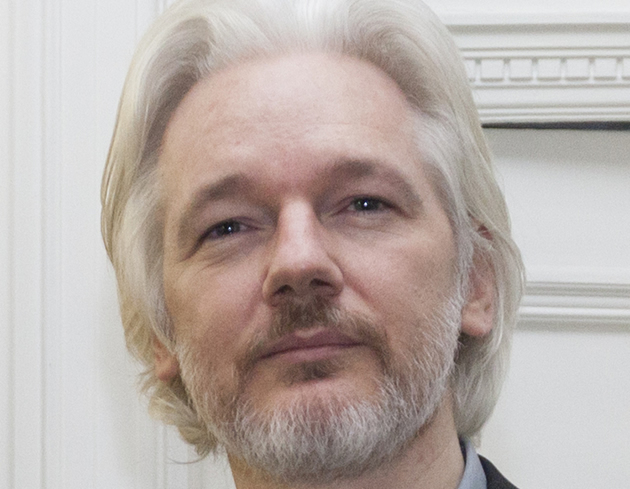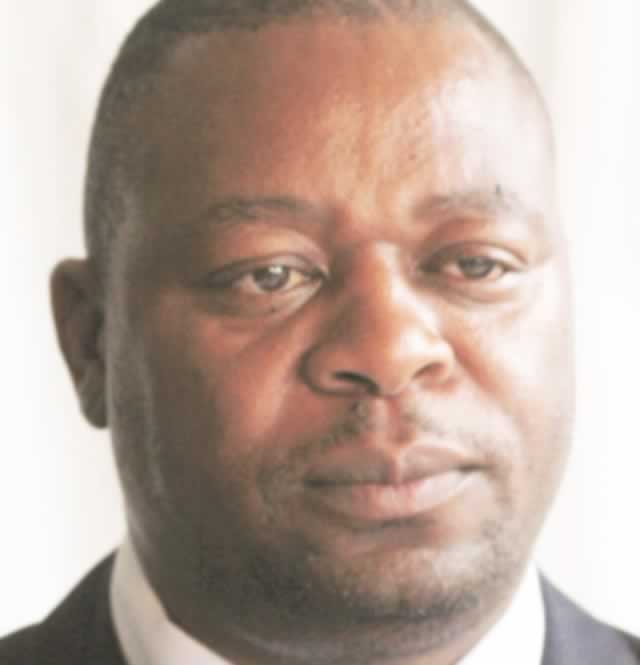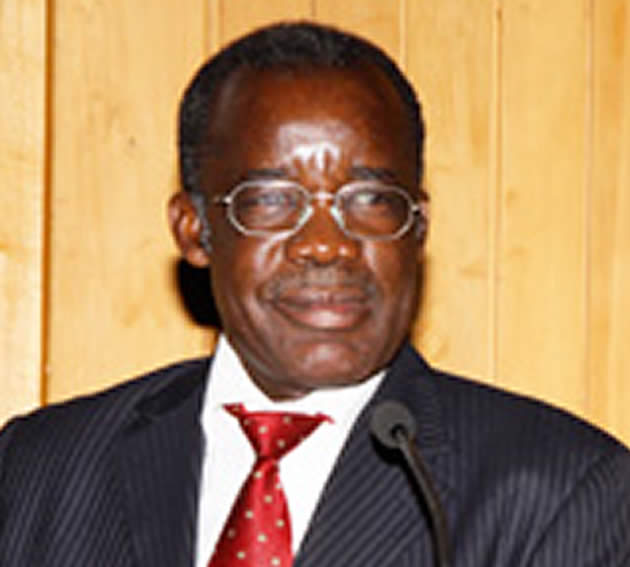Call for UN reform finds resonance

Nick Mangwana View from the Diaspora
Politics continue to be the theme of this column this week. However, the issue of alleged stealing of women’s underwear and questionable paternity pedigree will be avoided while direction and the narrative from the Politburo meeting tomorrow is awaited. But that subject is held in abeyance with a determined view to deal with it soon.
Who can resist such a sassy subject in these gloomy days of El Nino? So hopefully next week the column will go saucy.
After all, the President of the nation is surrounded by leaders that have shown that they can dish creative wisdom in the implementation of their own ‘‘10 Panties Plan’’ or is it the ‘‘10 Paternities Plan’’ instead of his well thought 10 Point Plan. So while waiting for more detail on alleged knickers kleptomania and paternity tests, let us go a bit geopolitical.
In a bid not to defy that idiom that says, fish and guests smell after three days, this column is not going to burn the base from where it is written.
It is going to sparingly recognise another aphorism that says that a guest should be blind in another man’s house.
This sometimes is a very difficult feat to achieve. Let the reader imagine being hosted by a certain family. They have been really nice to you. However, they start criticising your family for one thing or the other. As they keep going on, you the guest begin to notice that the hosting family actually does the very things that they are blabbering on about!
What is the best way of dealing with that situation? Do you hold your peace and wait until you are home and then tell it as it is? Do you just appreciate the hospitality and forever hold thy peace or do you gently remind them of the hypocrisy of their actions and words? What would a good guest do?
Probably a lot would hold their peace and appreciate the hospitality. But if the host starts pointing out that whoever holds their peace when they see something unseemly being done is in complicity? What does a good guest do?
Well, this guest has now opted to still be a good guest by gently bringing it to the attention of the good host that there is a gaping disparity between their words and actions.
Maybe this will be as welcome as being reminded that as you are criticising other people’s dressing, your own zipper is open. Great Britain has been a good host to this columnist. It even allowed a franchise of his political party to operate within its shores unimpeded. Its officials engage well with officials of the party. So we will be good guests and be less scathing. Munhu chengetekawo.
There was an event that went unnoticed last week. This is what happened regarding that person they call Julian Assange, who is the founder of that organisation that publishes secret and classified information it gets from anonymous sources called WikiLeaks. Zimbabwe had its own piece of the saga with the exposure that its (now former) Vice President had some of her own nocturnal rendezvous with the Americans to map up some undisclosed plans. This Mr Assange guy was then arrested by the British on behalf of the Swedes, who want him extradited to come and face rape charges there.
He sees this is as a sinister plot to take him to America as a punishment for the embarrassing leaks where he will be treated like those at Guantanamo Bay are treated. Therefore, five years ago he bolted into the Ecuadorian Embassy in London where he sought asylum and was granted.
He has been living there for five years, with the London police hovering close by to arrest him if he ever leaves his bolthole. This embassy is a very small place and he has no access to the sun in there, which is adversely affecting his health.
Julian Assange lodged as a complaint against Great Britain and Sweden in September 2014 in which he alleged that he had been arbitrarily detained by Britain and Sweden because he was not free to leave, as doing so would result in him being arrested.
This complaint was lodged with the UN working Group on Arbitrary Detention(WGAD), which is a panel of human rights experts whose role is to examine appeals against unlawful detention.
They provide an expert legal opinion based on international law. This panel was also established by a UN Charter. For 16 months, Britain and Sweden gave a robust defence of their position to the panel and worked well with it. On February 5, 2016, the panel issued its landmark findings.
The finding which went against Britain and Sweden was that Mr Assange was illegally deprived of his liberty and therefore was entitled to compensation.
Great Britain gave a robust response tinged with political grandstanding and posturing. Among other things, the Foreign Secretary said the country could not be bound by a panel of “laypersons” even though this panel is a product of a United Nations Charter. The pedigree of the panel speaks for itself.
Maybe it helps the reader if we check who and where the five members of the panel hail from.
The chairman is Seong-Phil Hong, an associate professor in international law, human rights, and ethics in investment at Yonsei Law School, South Korea.
José Guevara, is a human rights lecturer and also a person that has written a few books on the same subject. He is from Mexico.
The only African on the panel is Sètondji Adjovi. He is from Benin but the interesting thing is that he is an assistant professor in African affairs and international law at Arcadia University, Philadelphia. Before someone says there was no Western on the panel, there was also Leigh Toomey, from Australia, who has taught human rights. The only dissenting voice was Vladimir Tochilovsky, from Ukraine.
Everybody can guess why Ukrainian found it worthy to dissent against a majority decision here. This is the panel that has said that Mr Assange should be able to walk free from the Ecuadorian Embassy and be compensated.
This decision is a UN decision. It might sound quite flawed to be fair because on the face of it, it appears any wanted criminal can use it to claim political persecution by seeking refuge in a hostile embassy, making themselves not only immune to facing their day in court but also entitling them to compensation.
The implication of the decision is not the issue here. The issue is the undermining of the institute and its organs of the UN by big nations.
Those who followed the Murambatsvina saga are aware of the international outcry when Zimbabwe dismissed Tibaijuka’s findings.
The muted response to the ridiculing of the UN by both Foreign Secretary Phillip Hammond and David Cameron is deafening.
The use of the United Nations as a convenient tool for big nations when it suits them is what that speech in Addis Ababa was all about. It was about the emasculation of Mr Ban Kin Moon and his institution when it suits certain nations and its selective re-empowering to provide a ready narrative for their extra-territorial adventures as happened in Iraq and Libya.
This column holds no brief for Mr Assange, whose actions on WikiLeaks are in the same vein as Baba Jukwa, which is really some kind of cyber espionage bent on bringing anarchy.
Maybe he is right that if he is extradited to Sweden he will end up in the United States and subsequently in Guantamo Bay. Maybe he is just a rapist running away from justice as his detractors and the two countries claim. That argument is neither here nor there. The point that is there is that once again the institute of the UN has been defied by the so-called developed nations and nothing is going to happen to them.
No sanctions, no censure, no UN resolution. Nothing.
The most cited flagrant disregard of the UN resolutions that has always smirked of double standards is the one against Israel.
There are said to be at least 77 active UN resolutions against Israel and one against the Palestinians but there are no sanctions against Israel for flouting each and everyone of those resolutions.
Sanctions have just been removed from Iran after what some say is capitulation whilst others view it is pragmatism. They remain against our own Zimbabwe with Corker’s letter vindicating the argument and exposing the sanctions denialists. If there were no double standards ,wouldn’t Zimbabwe be at a different level?
While in Zimbabwe’s case, the veto in the hand of China and Russia was a helping friend in 2008, making the sanctions illegal, but weren’t sanctions imposed regardless? And when the arbitrary sanctions were imposed in the same manner as the arbitrary detention of Mr Assange, what did the UN do? Again nothing.
This is why the call for UN reform and fair appropriation of power found international resonance with most of the not so privileged nations.











Comments